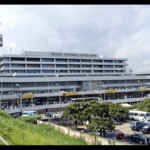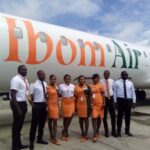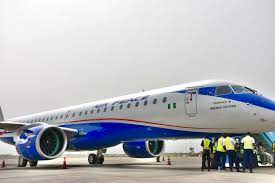
Nigeria is not benefitting from the lucrative international flights to different destinations in the world, which are known for providing the highest yield in Africa. In terms of revenue, partnership, employment, manpower development or technology transfer, Nigeria remains a loser, as foreign airlines record high load factor out of different airports from the country.
What is unique about Nigeria’s international air travel market is that while South Africa, Morocco and Egypt may record higher passenger traffic made largely of tourists and others, Nigerian passenger traffic is made up of 99 per cent indigenes and has been a consistent market since the last 40 years.
Nigerians are known as very mobile people who like to travel, so because of their penchant to travel they have remained the most attractive market for airlines, as travellers from the country willingly pay relatively high fares, dubbed to be the highest airfares from any African country.
Nigerian aviation expert, Nick Fadugba, observed that what is unique about the Nigerian travel market is that passengers fill the aircraft from the first cabin to the last. In other words, in Nigeria, airlines fill up their first class, business and economy cabins regularly. This has made Nigeria a unique market, which made Ethiopian Airlines former country manager describe Nigeria as the most competed market in Africa. Industry analysts have posited that Nigeria gives major international carriers the highest profit per flight in Africa.
British Airways in 2015 adjudged Nigeria as its biggest market for air transport business, as the airline records the highest passenger seats among international carriers that operate in Nigeria.
According to records from the Nigerian Civil Aviation Authority (NCAA), in 2021 British Airways operated 587 flights to Nigeria, Emirates 225 because it stopped operating to Nigeria most of last year due to the impasse United Arab Emirates had with the federal government over COVID-19 Protocol. Ethiopian Airline operated 828 flights; Kenya Airways operated 271 flights, KLM, 229, Lufthansa, 555 flights; Qatar Airways, 679, Turkish Airlines, 669, Virgin Atlantic, 363 and Delta Air Line, 350. These are major carriers that operate to Nigeria during the period and the total number of flights during the period was 9, 675.
NCAA also disclosed that the number of outbound passengers in 2021 was 1, 112, 884; while inbound passengers was 1, 086, 395, making a total of passengers that travelled to international destinations to 2, 199, 279.
Writing in Moguldom Nation, an online medium, Kelvin Mwanza wrote that Nigeria’s Lagos and Abuja routes are the most lucrative destinations for airlines operating in Africa due to the high load factor that even rivals developed markets like New York.
“The west African country load factor is usually high from top to bottom meaning that the first and business classes in these airlines fill up first before the economy. This makes it one of the best destinations for premium airlines such as British Airways, Emirates, Virgin Atlantic, Air France, KLM, Delta Air Lines and Lufthansa. It is estimated that British Airways makes more revenue from three flights to Lagos than it makes from 10 Flights to New York,” he wrote.
Mwanza also wrote that this could be explained by the fact Nigerians are class-conscious flyers that prefer travelling in the first and business class. Normally carriers earn more per seat for the few seats in first class and business class, than hundreds of seats in the economy class.
He also observed that most of these expensive seats snapped up by Nigerians are paid by government, corporate institutions and well to do Nigerians.
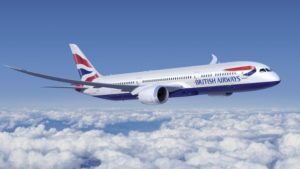
Benefits
But the big question is, what is Nigeria benefitting from this market that is profitable to many foreign carriers? Is Nigeria getting anything in terms of technology transfer, manpower development, code-share between local airlines and international carriers, which will enable the domestic airlines earn more revenue? Travel expert and organiser of Akwaaba African Travel Market, Ambassador Ikechi Uko, told THISDAY that aviation agencies said they are sustained by the revenue they earn from foreign carriers, which promptly pay their charges. But beyond payment of charges, which is obligatory in every part of the world, including not so profitable destinations, what else does Nigeria gain from its profitable routes dominated by foreign carriers?
Uko recalled that many years ago, the German mega carrier, Lufthansa trained many Nigerian aviators in the 1980s that became the fulcrum of aviation management in Nigeria and those still alive have continued to make invaluable contribution to the sector. Few years ago when Delta Air Line started operation to Ghana it built terminal facility at KotokaInternational Airport, Accra. None of such has happened in Nigeria.
Today many of the workers for British Airways and some other mega carriers in Nigeria are on contract arrangement. Many foreign airlines have moved their operation administration from Nigeria, leaving only marketing managers. Many of them are operating their Nigerian services from South Africa.
“In doing this they have reduced their expenses in Nigeria while increasing their revenue from the country,” said an official of the Federal Airports Authority of Nigeria (FAAN).
Airfares
Nigeria pays relatively the highest fares in the operation of these mega carriers in Africa. Ambassador Uko argued that this could be due to market forces because there is always passenger surge on the Nigerian route. Charging Nigeria higher fares had led to imbroglio some years ago when the then Director General of NCAA, Dr Harold Demurenquestioned the outrageous fares charged on the Nigerian routes by BA and Virgin Atlantic Airways, especially in first and business classes. He moved to stop the exploitation but his protest was mired in controversy, as Nigerians erupted from everywhere to defend the British carriers. Then it was posited that the airlines charged Nigerian passengers higher for six hours flight from Lagos, Abuja to London while it charges less for Johannesburg to London, which is about 11 hours, 10 minutes flight.
Director of Operations, Cargolux Airlines and the President of Association of Foreign Airlines Representatives in Nigeria (AFARN), Kingsley Nwokoma, told THISDAY on Wednesday that the cost of doing business in Nigeria is very high when compared to other countries.
“The explanation of the high fares is very easy. The cost of doing business in Nigeria is extremely high vis a vis other countries. Airfares in Ghana are even cheaper. It is the same with cargo rates. The ease of doing business in Nigeria is full of obstacles. There are a lot of charges airlines must pay to the aviation agencies like NCAA, FAAN, the Nigerian Airspace Management Agency (NAMA), which are very high comparatively,” he said.
Code-share
Ambassador Ikechi Uko said that it would be difficult for Nigerian airlines to have successful code-share agreement with foreign carriers because of the inability of local carriers to sustain on time performance. Foreign airlines would want to partner with local carriers that are consistent with their operational schedules.
The General Manager, Public Affairs, NCAA, Sam Adurogboye, told THISDAY that the regulatory authority has done many things in the past to encourage code-share between Nigerian carriers and their foreign counterparts.
“Why not, we encourage code-share between Nigerian and foreign airlines. You can recall that NCAA once paid IATA (International Air Transport Association) N10 million years ago to conduct gap analysis for all the airlines designated on foreign routes. That was a supportive idea meant to have the IOSA (IATA Operational Safety Audit) audit conducted by IATA so that they can partner mega carriers. This is because no mega carrier will partner without knowing your safety status. So, we have always encouraged the airlines with the hope that it would enable them generate forex as income. Our boss will always say, you can’t be wrong supporting your own,” Adurogboye said.
A country manager of one of the foreign airlines in Nigeria told THISDAY that the way foreign airlines deal with Nigeria is the way they also deal with any other country they operate in; that nobody provides anything extra. He said that foreign airlines can locate their regional office anywhere, just as many companies locate their customer service in Philippine, remarking that it was wrong to describe Nigeria as lucrative route because it is the airlines that make it lucrative by the service they render to their passengers, observing that Nigerian carriers that operate international destinations are not as successful as foreign carriers due to their mode of operation.
He said that for Nigeria to attract more people to travel through the country it has to build state of the art airports with transit facilities, stressing that now people move from Togo, Benin Republic to Ghana and Code d’Ivoire to connect flights. He also regretted that NCAA couldn’tregulate FAAN, which to him explains why the airport terminal without good facility could be allowed to exist.
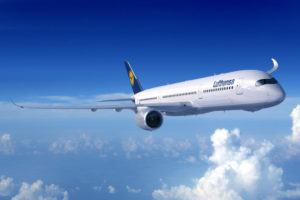
“Your airport has to be good. There was a time I travelled to Tamale in northern Ghana. The airport there was military airport, small but it has all the facilities, so if there is flight delay you wont even be angry because you are comfortable. You have charging points, Wi-Fi, air conditioner and nice place to sit and wait.
“If our airports are run efficiently, no vehicular traffic to the airport and passengers have good experience at the airport, more people would want to travel through our airports. But here the toilets are very bad, Nigerian Customs will extort you and harass you,” he said.
The official also added that it would be difficult for foreign airlines to partner with Nigerian carriers for many reasons, noting that as far as Nigerian airlines operate point to point in their international service, they wont benefit from the so-called lucrative routes.
“Every government ought to have policies that will encourage its local airlines to thrive. Nigeria does not have any, so you don’t blame foreign airlines,” he added.
Perception
Reacting to the country manager’s observation, the Founder and Chairman of Arik Air, Sir Joseph Arumemi-Ikhide, told THISDAY in a telephone interview that the major reason why Nigerian carriers face challenges on international routes was because Nigerians don’t like patronising their own; they love everything foreign. He recalled when BA was charging exorbitant fares, especially on business and first class cabins and he spoke to one of the bank owners who told him that he had told his boys to be flying Arik Air while he flew BA.
“We don’t have foreign banks in Nigeria but our bankers rush to foreign airlines. They occupy the first and business class seats of foreign airlines, leaving the others to patronise Nigerian airlines. I also noticed that Nigerians are very respectful when they fly foreign airlines but are very unruly when they fly Nigerian carriers. If you bring Emirates today to operate domestic service, Nigerians will leave the domestic airlines they have been flying and rush the Emirates flight. We don’t believe in growing our own.
“We had code-share with Emirates at a time. We needed to deposit $2 million and we went to the Central Bank of Nigeria (CBN) to ask for $2 million, which we would exchange with our naira. They said they couldn’t give us. We sourced the $2 million from the parallel market and deposited. When that was exhausted we couldn’t provide another deposit; that was how the code-share ended. So it has to do with government policies. Emirates, South Africa Airways, Virgin Atlantic Airways and others got huge financial support after the COVID-19 lockdown but what was given to Nigerian carriers? Peanuts.
“I wouldn’t blame any Nigerian airline. If Nigeria airlines are to succeed, government ought to make dollars available to them. Nigerian airlines train local manpower. Last time I travelled to Nigeria with British Airways from London, a cabin crew official came and greeted me. She told me she was trained in Arik. There are a lot of them, including pilots and engineers who are now working with foreign carriers. Government should have planned policy on how to grow domestic airlines,” Arumemi-Ikhide said.
THISDAY



